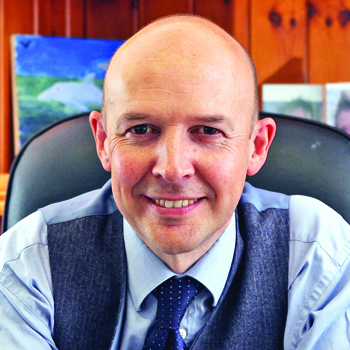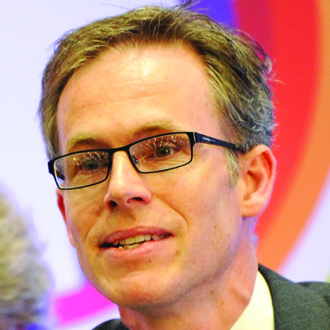
YES. Regulation is now reassuringly strict
If you had asked me this question two decades ago I’d have hesitated. GPs of my generation will remember the days of pharma reps’ lunch meetings, industry-sponsored meals in restaurants and paid trips to conferences in the UK and abroad, all ostensibly linked to education about a particular therapy area – and reinforced by the drawers full of pens and gadgets with pharmaceutical logos on them.
Fortunately, those days are now behind us. Justified criticism of disproportionate compensation and hospitality led to the current culture of transparency and strict regulation. The Association of the British Pharmaceutical Industry (ABPI) recently highlighted the importance of greater transparency between the industry and clinicians.1 Anyone can now check the relationship between an individual doctor and a pharmaceutical company, including any declared payments.
GPs are better placed than ever to work objectively with pharma in education and on treatment guidelines to improve patients’ quality of life. We can ensure recommendations reflect their actual experiences and influence the treatment pathways we want them to have. Being involved with pharma gives us greater access to the latest scientific trial data and real-world evidence so we can do this more effectively.
Working with pharma is interesting and educational
The suggestion that GPs’ prescribing patterns are unduly influenced by sponsored health education is, at best, disingenuous and at worst an insult to our professionalism. When was the last time you saw a drug rep? What would be the point? Our prescribing patterns are mainly influenced by CCG guidelines, monitored by prescribing advisors.
GPs won’t become rich from working with pharma – it is not that lucrative and you can choose not to take payment – but it is interesting and educational. The days of pharmaceutical blockbusters and bottomless budgets are long gone, and we now have greater collaboration between healthcare professionals and pharma, encouraged by ministers with their joint-working initiative programme under appropriate regulation.2
In the end, involvement with pharma-linked educational campaigns comes down to personal choice. For me, today’s increased transparency makes it an acceptable one.
Dr Roger Henderson is a GP and media doctor based in Shropshire

NO Regulation of pharma ties is not enough
Most GPs are far too busy to see drug reps these days – it almost seems the influence of the pharma industry has slipped into the shadows. If anything, though, it has strengthened its grip by acting behind the scenes. Whether in developing guidelines, defining new diseases or lobbying ministers, the role of key opinion leaders (KOLs) has grown in recent years, and industry knows that if it can manipulate KOLs it can change the behaviour of us all. And what better way to influence them than to flatter them with consultancy work?
The eloquent and sobering essay by one such KOL, Dr Peter Whitehouse, Why I No Longer Consult for Drug Companies3, is highly instructive. After 20 years of lucrative consultancy work, starting with the best of intentions, he realised ‘they were trying to manipulate my opinion as much as I was trying to give them mine’. He had learned the drug companies employed him solely to increase their bottom line: by influencing other doctors’ prescribing and driving the invention of new conditions – like ‘mild cognitive impairment’ – to create a new market.
We wrongly assume we are less vulnerable to bias than our peers
Many KOLs with potential conflicts of interest will claim their professional integrity prevents them succumbing to bias from such work. But evidence shows any contact with pharma reps influences prescribing behaviour4 and that doctors frequently, and wrongly, assume they are personally less vulnerable to such bias than their peers.5 They will argue that as long as they are transparent there is nothing to worry about. Yet studies have shown declaring interests can paradoxically increase bias and so make matters worse.6 As Dr Whitehouse concluded, conflict of interest is currently the greatest single ethical issue in medicine – we can’t pretend it isn’t there.
We need to limit the influence of conflicted KOLs, by removing their platform and promoting experts who have no potential conflicts of interest. The RCGP could insist its ‘clinical champions’ and speakers are free of industry ties – perhaps even inventing a kitemark of good practice. At grassroots level we could completely boycott industry-sponsored educational events; these may seem attractive when they are free but if we allow industry to pay for our education we can only expect to come under its spell.
Dr Martin Brunet is a GP in Guildford, Surrey
References
1 ABPI Code of practice for the pharmaceutical industry. 2016
2 UK Government. Moving beyond sponsorship: Interactive toolkit for joint working between the NHS and the pharmaceutical industry.
3 Whitehouse PJ. Why I no longer consult for drug companies. Cult Med Psychiatry 2008;32:4-10
4 Lieb K and Scheurich, A. Contact between doctors and the pharmaceutical industry, their perceptions, and the effects on prescribing habits. PLoS One 2014;9: 6-11
5 Sah S. Conflicts of interest and your physician. J Law Med Ethics 2012; 40:482-487
6 Loewenstein G et al. The unintended consequences of conflict of interest disclosure. JAMA 2012; 307: 669–70
Pulse July survey
Take our July 2025 survey to potentially win £1.000 worth of tokens












